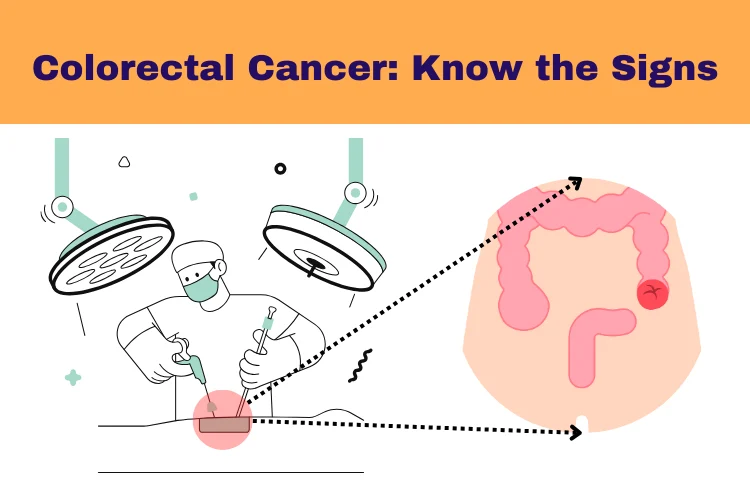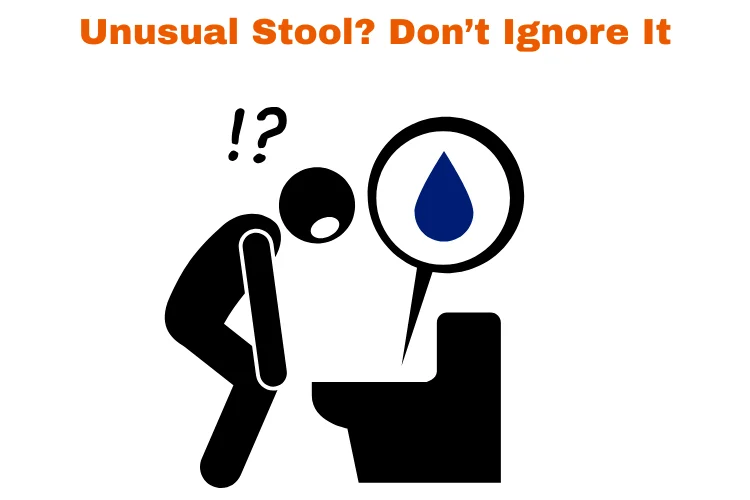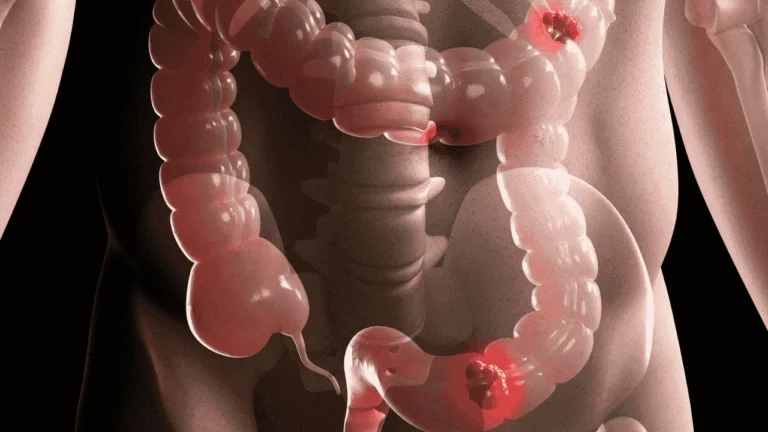Colorectal cancer symptoms: Did you know that one of the most prevalent cancers in the world is colorectal cancer? The good news is that survival rates can be considerably raised by early detection. Recognizing Colorectal cancer symptoms can help in timely diagnosis and effective treatment. Understanding the risk factors and available colorectal cancer treatment options can empower you to take proactive steps toward prevention and care.
What Is Colorectal Cancer?
When abnormal cells proliferate out of control, colorectal cancer develops in the colon or rectum.It might spread to other parts of the body if it is not detected in time. Frequently, the condition begins as precancerous polyps that eventually develop into cancer.
Early Colorectal cancer symptoms
Many people with early-stage colorectal cancer experience no symptoms. However, as the disease progresses, signs may appear. Common early signs of colorectal cancer include:
- Constant alterations in bowel habits, such as constipation or diarrhea
- Blood in stool or rectal bleeding
- Unexplained weight loss
- Abdominal pain, cramps, or bloating
- Fatigue and weakness
- Sensation of incomplete bowel emptying
If you notice any of these signs and symptoms of colon cancer, consult a doctor immediately.
Colorectal Cancer Risk Factors
The following are some of the factors that raise the risk of colorectal cancer symptoms:
Age: The risk is higher for those over 50.
Family history: Your risk is increased if you have a close relative who has colorectal cancer.
Diet: Eating a lot of red and processed meats can increase your risk of developing cancer.
Obesity: The risk of colorectal cancer is increased by being overweight.
Alcohol consumption and smoking : Both are associated with higher risk.
Sedentary lifestyle: This cancer is exacerbated by a lack of physical activity.
Certain medical conditions: The risk is increased by conditions such as inflammatory bowel disease (IBD).
Colorectal Cancer Diagnosis: How Is It Detected?
There are several methods of diagnosing colorectal cancer symptoms, including:
- Colonoscopy: It is the best test for diagnosis of colorectal cancer and polyps.
- Blood Tests: For proof of anemia or tumor markers.
- CT colonography: A less invasive imaging alternative for identifying abnormality.
- Biopsy: If suspicious growths are identified, the tissue is sampled for evaluation.
Colorectal Cancer Stages
Colorectal cancer symptoms progresses through different stages:
- Stage 0: Cancer is limited to the inner lining of the colon.
- Stage I: Cancer has spread to deeper layers but remains within the colon.
- Stage II: The tumor has grown through the colon wall but has not reached lymph nodes.
- Stage III: Adjacent lymph nodes have been affected by the cancer.
- Stage IV: Other organs have been affected by cancer.
Early detection increases the chances of successful treatment for colorectal cancer.
Colorectal Cancer Treatment Options
The treatment for colorectal cancer symptoms depends on different factors like its stage, its place in the body, and the health of the patient. Common such-options for the treatment from colorectal cancer include:
1. Surgery
Polypectomy: Small cancerous polyps can be excised during colonoscopy.
Colectomy: Removal that is specified to partial or total colon removal.
Proctectomy: In the cases of rectal cancer, the rectum is removed.
2. Radiation Therapy
At very high energy rays, destroy cancer cells. Its main usage in this case is for early signs of rectal cancer.
3. Chemotherapy
Drugs that kill cancer cells are mostly after surgery to prevent recurrence.
4. Targeted Therapy
Attacks certain proteins of the cancer cells stopping the growth of the tumor.
5. Immunotherapy
It lets the immune system find and attack cancer cells.
Colon Cancer Prevention: How to Lower Your Risk
The measure of colorectal cancer risk can be reduced by:
Eating a healthy diet: Extending fiber intake from fruits, vegetables, and whole grain.
Exercising consistently: Reduce weight through active living.
Avoiding smoking and limiting alcohol: Both enhance the risk of colon cancer.
Following colon cancer screening recommendations: Screenings can detect cancer at the earliest possible stage.
Controlling chronic health problems: Manage diabetes and IBD.
Conclusion
Screening and awareness are essential because colorectal cancer symptoms are frequently missed in the early stages. Early diagnosis and efficient management of colorectal cancer can be facilitated by knowledge of the disease’s early symptoms, risk factors, and available treatment options.Seek medical attention as soon as you experience any symptoms.
Set up a colorectal cancer screening now to take control of your health!
FAQs
1. What are the first Colorectal cancer symptoms?
The first signs often include rectal bleeding, persistent bowel habit changes, and unexplained weight loss.
2. How is colorectal cancer diagnosed?
Doctors use colonoscopy, imaging tests, blood tests, and biopsies for colon cancer diagnosis.
3. What are the main treatment options for colorectal cancer?
Surgery, chemotherapy, radiation therapy, immunotherapy, and targeted therapy are among the available treatment options.
4. Can colorectal cancer be prevented?
Yes, following a healthy diet, exercising, and getting regular screenings can help prevent colorectal cancer.
5. What are the survival rates for colorectal cancer?
Survival rates depend on the stage of diagnosis. Early-stage cancer has a high survival rate, while advanced stages have lower survival rates.
6. At what age should colon cancer screening start?
Colon cancer screening guidelines recommend starting at age 45 or earlier for those with risk factors.




